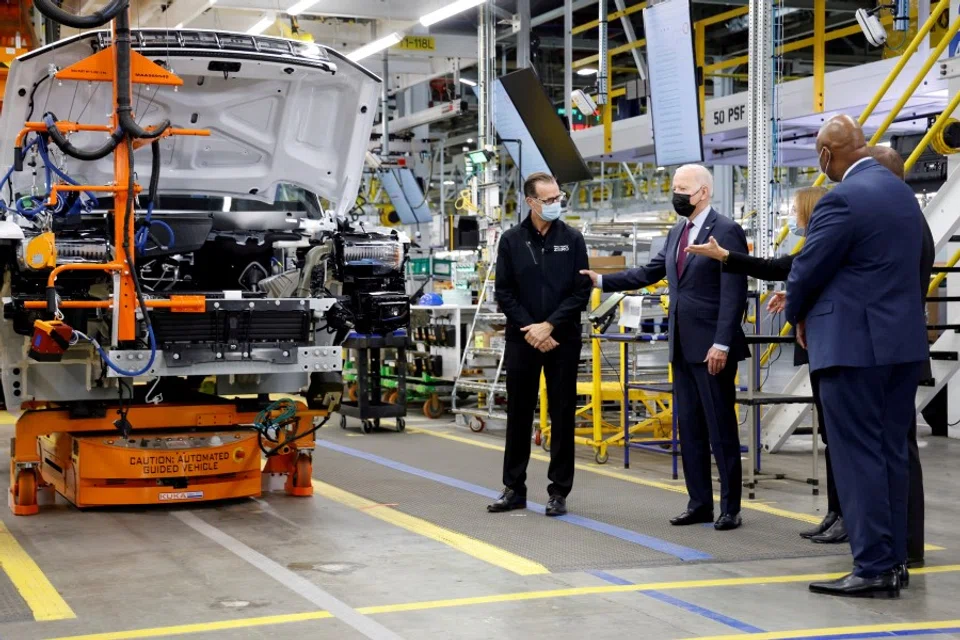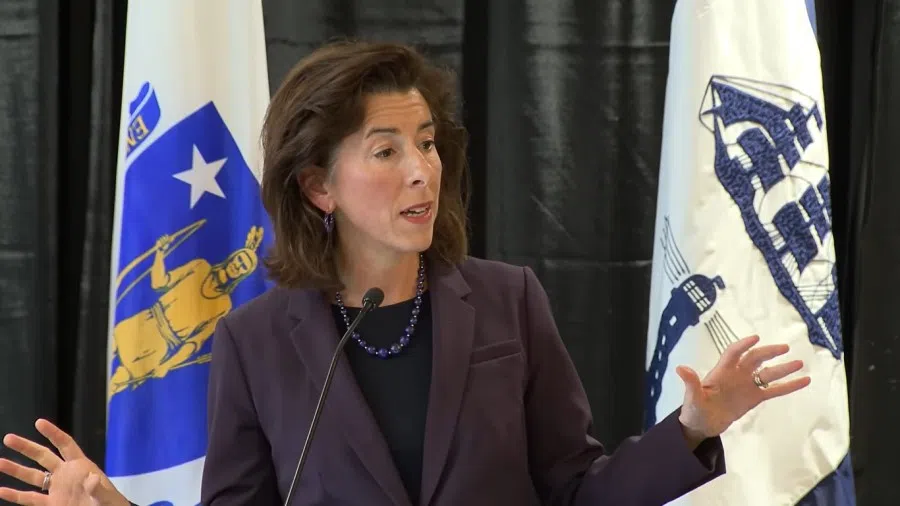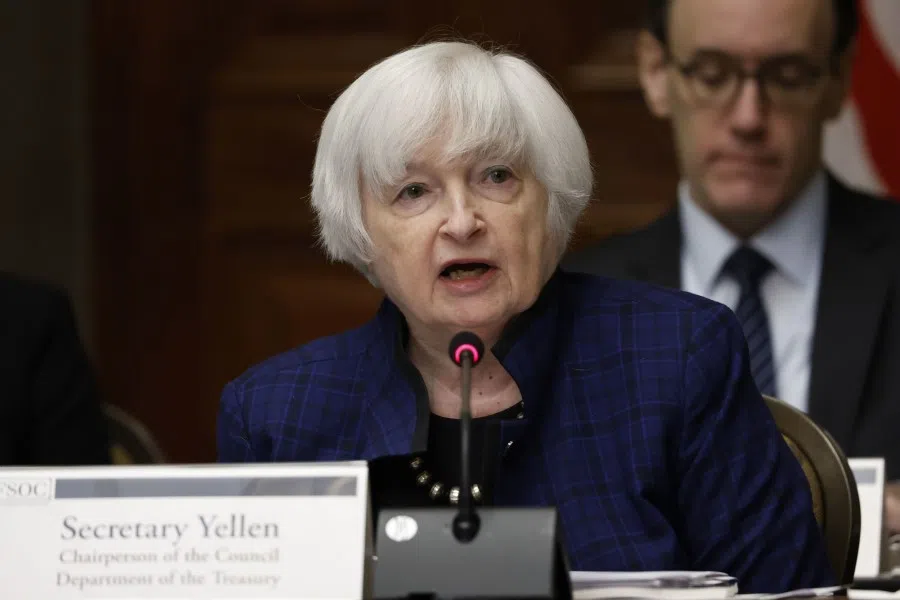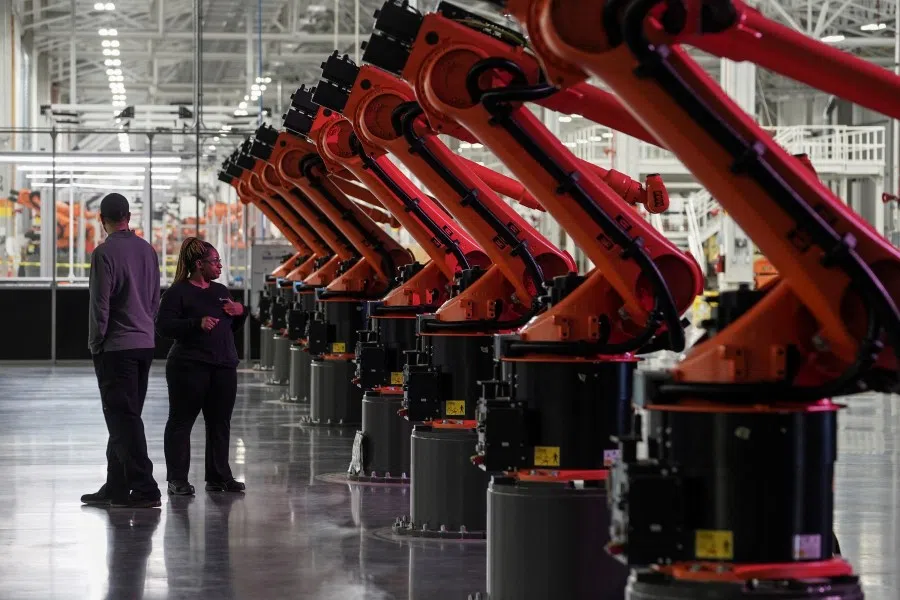US efforts to compete with China could undermine global economic order principles
The US often stresses the need to uphold the rules-based international order, but its recent moves towards giving priority to developing the domestic economy and manufacturing within the US might mean that the advocate of the rules may be guilty of undermining them.

The US frequently champions the "rules-based international order", but what happens when leaders in Washington themselves undermine some of the rules?
Many US allies and partners have asked this question in response to a series of US economic actions, particularly the Inflation Reduction Act. On 30 November in Washington, French President Emmanuel Macron called the Act "super aggressive" against European companies.
More specifically, the EU has criticised nine of its tax credits. South Korean officials have even labelled the legislation a "betrayal" (it doles out tax credits to US-made vehicles and batteries). And the World Trade Organization's director general, Ngozi Okonjo-Iweala, warned: "subsidies that are being given for the electric vehicles may be discriminatory".
Re-shoring over friendshoring
This is hard to square with the administration's insistence on upholding the rules-based economic order. In her recent remarks at the Massachusetts Institute of Technology, US Commerce Secretary Gina Raimondo blamed China for a series of unfair practices.
Indeed, China is violating a host of economic rules and norms. The Chinese government engages in widespread intellectual property theft to benefit its own private companies and state-owned enterprises. Meanwhile, Beijing has provided massive subsidies to its domestic industries and barred many foreign companies from operating in China. The Communist Party also has lower labour, environmental and other standards than many of its competitors.
Yet, for all the valid criticism of China's economic behaviour, the Biden administration is itself pivoting to greater reliance on industrial policy via state subsidies.

Yet, for all the valid criticism of China's economic behaviour, the Biden administration is itself pivoting to greater reliance on industrial policy via state subsidies. Raimondo insists that "our economic competitiveness and national security depend on a bold domestic investment agenda in strategic and critical sectors".
The US National Security Strategy asserts that "strategic public investment is the backbone of a strong industrial and innovation base in the 21st century global economy". And President Joe Biden himself recently promised that "instead of relying on chips made overseas in places like China, the supply chain for those chips will be here in America".
It is entirely logical for foreign countries to adopt their own industrial policies to compete with China. Ideally, this would be done through what Secretary of the Treasury Janet Yellen has called "friendshoring" - strengthening economic ties with allies and partners to decrease over-reliance on unreliable governments.
This is an appealing concept. But US allies worry that some recent US actions - such as the Inflation Reduction Act - appear to prioritise re-shoring over friendshoring. At times, Washington has even adopted policies that threaten to re-shore from friendly countries.
This risks a race to the bottom, in which efforts to compete with China would undermine core principles of the global economic order.
Creating a level playing field
When allies have challenged US leaders on this principle, the latter have sometimes suggested that foreign leaders adopt their own industrial policies. Yet, this could start a vicious cycle.
As Secretary General of the European External Action Service Stefano Sannino recently warned, it would not be rational to end up in "a situation where the United States is subsidising on one hand and the European Union is subsidising on the other hand". This risks a race to the bottom, in which efforts to compete with China would undermine core principles of the global economic order.

The Biden administration often gets its rhetoric right. Secretary Yellen has argued that the US's industrial policies are "not an attempt to completely paralyse China's economy and stop its development". The National Security Strategy insists that "the United States must once again rally partners around rules for creating a level playing field that will enable American workers and businesses - and those of partners and allies around the world - to thrive".
But US actions have undermined these messages. The Trump administration cited "national security" when placing tariffs on allies. The Biden administration is treading the same track, using national-security grounds to reject the World Trade Organization's recent ruling that found such tariffs in violation of international trade rules and continuing to freeze the WTO's dispute settlement mechanism. US leaders have also been unwilling to embrace new trade agreements.
Persuading US allies and partners
The Biden administration will have to work harder to persuade US allies and partners that selective decoupling is not simply another form of protectionism. Selective decoupling from China makes the most sense in those sectors that have obvious military applications. National Security Advisor Jake Sullivan has committed the US to protecting "technology advantages" in three areas: computer-related technologies, biotechnologies and biomanufacturing, and clean energy technologies. Computing has clear military applications, but the links to the latter two are less obvious.
The US government is pursuing two main lines of effort: subsidies for industrial policy and encouraging diversification through selective decoupling. The former relies on positive incentives (at least for US companies) and the latter on the threat of negative penalties.

If coordinated with allies and partners, these two policies could reinforce one another and strengthen global economic rules. If conducted unilaterally, however, these two tools will be in tension. In this case, many US allies and partners will continue to express frustration that the US is violating some of the very economic rules that Washington helped to write in the first place.
As for Southeast Asian countries who choose to be friends of both the US and China, both "re-shoring" and "friendshoring" may cut them off from critical supply chains and "shut off avenues for regional growth and cooperation"...
In her recent speech, Secretary Raimondo promised "to reshore or friendshore core parts of our supply chains". For many US allies, the concern is that Washington's policies may stimulate more reshoring than "friendshoring".
As for Southeast Asian countries who choose to be friends of both the US and China, both "re-shoring" and "friendshoring" may cut them off from critical supply chains and "shut off avenues for regional growth and cooperation", as warned by Singapore Prime Minister Lee Hsien Loong. In the State of Southeast Asia Survey released early this year, the region put high hopes on the Biden administration to champion global free trade. As 2022 winds down, they might not be so sure anymore.
This article was first published by ISEAS - Yusof Ishak Institute as Fulcrum commentary.





